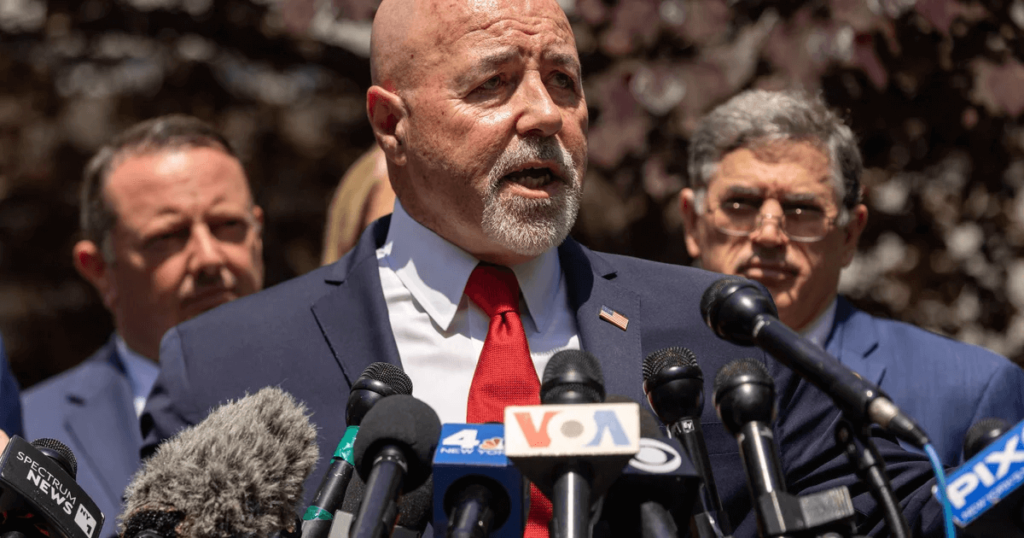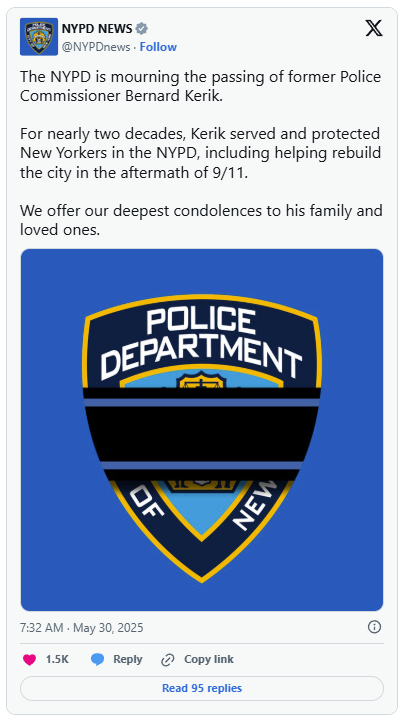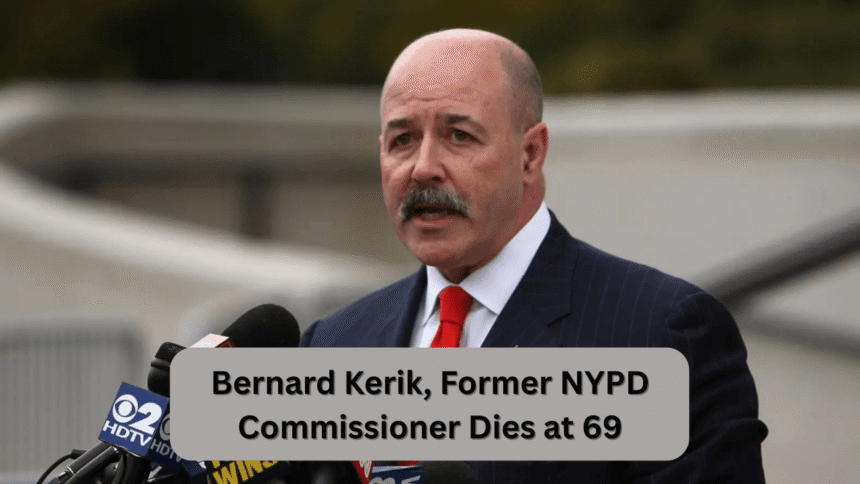Bernard B. Kerik, the former New York City Police Commissioner who became a symbol of resilience during the September 11, 2001, terrorist attacks, died on May 29, 2025, at the age of 69. His passing marks the end of a life defined by moments of extraordinary leadership, personal controversy, and national attention.
A Gritty Rise from Humble Beginnings of Bernard Kerik
Bernard Kerik’s early life was far from the world of politics and national security. Born on September 4, 1955, in Newark, New Jersey, and raised in Paterson, he had a tumultuous youth. He dropped out of high school but later earned his GED. Driven by a desire for structure and purpose, he joined the U.S. Army in 1974 and served as a military policeman. His time in the military helped instill a deep respect for discipline, order, and leadership—values that would follow him throughout his career.
After completing his service, Kerik began working in law enforcement in New Jersey, eventually joining the New York City Police Department in 1986. His charisma and determination quickly stood out, and he advanced through the ranks with a blend of street experience and political savvy.
Climbing the Ranks

Bernard Kerik’s rapid rise in the NYPD was influenced by his close relationship with Rudy Giuliani, who was elected mayor of New York City in 1993. Kerik served as Giuliani’s bodyguard and personal driver during his campaign, forming a friendship that would prove instrumental in his career. Giuliani appointed Kerik as commissioner of the New York City Department of Correction in 1998, where he earned a reputation for tough, results-driven leadership. He cracked down on corruption within the department and implemented reforms aimed at increasing accountability.
In 2000, Bernard Kerik’s loyalty and managerial success led Giuliani to appoint him as Police Commissioner of the NYPD. Though some questioned his qualifications, Kerik took the position with confidence. He was known for his hands-on approach, often appearing on crime scenes personally, and earning the respect of many rank-and-file officers.
A Defining Moment: September 11, 2001
Bernard Kerik’s most defining moment came just over a year into his tenure as Police Commissioner. On the morning of September 11, 2001, the world watched in horror as the Twin Towers were attacked. Kerik’s calm, firm leadership during the chaos and his coordination with other first responders became a symbol of New York’s grit and determination.
He was at Ground Zero for days, helping to lead the largest rescue and recovery operation in American history. His face became a familiar one on national television as he briefed the public and ensured the police force remained focused and unified amid the unprecedented devastation.
For his actions, Bernard Kerik received numerous awards and honors, both domestically and internationally. He was praised as a hero and was thrust into the national spotlight as a model of law enforcement leadership during a time of crisis.
A Fall from Grace
Kerik left the NYPD in 2001 and entered the private sector, offering security consulting services. His national reputation remained strong, and in 2004, President George W. Bush nominated him to serve as the head of the U.S. Department of Homeland Security. The nomination was widely praised at first, given Kerik’s 9/11 leadership experience. However, within days, the nomination unraveled.
Kerik withdrew his name from consideration, citing the employment of an undocumented immigrant as a nanny. But this admission opened the door to further scrutiny. Federal investigators later uncovered a slew of legal and ethical violations, including tax fraud, false statements, and improper use of public funds during his tenure as Correction Commissioner.
In 2009, Bernard Kerik pleaded guilty to eight felony charges and was sentenced to four years in federal prison. He served three years before being released in 2013. The fall from public hero to convicted felon was dramatic and widely publicized. It left a lasting mark on his reputation, but it did not end his public life.
A Polarizing Return
After serving his prison sentence, Bernard Kerik slowly re-entered public discourse. He authored a memoir, began speaking about criminal justice reform, and became an advocate for inmates’ rights—an ironic shift given his past as a tough-on-crime police chief.
His association with political causes intensified during the Trump presidency. Kerik became a vocal supporter of Donald Trump and took part in efforts to investigate claims of election fraud following the 2020 presidential election. He was subpoenaed by the House committee investigating the January 6 Capitol attack and handed over thousands of documents, which put him back in the public spotlight.
In 2020, Trump granted him a full presidential pardon, erasing his federal criminal convictions. The pardon was controversial, praised by some as a recognition of Kerik’s post-incarceration work and criticized by others as politically motivated.
Final Years and Legacy

Despite his tumultuous career, Bernard Kerik remained a prominent voice on issues of policing and national security until his death. He frequently appeared on television as a commentator and maintained a strong following among supporters of law-and-order policies.
Kerik’s death was met with a mixture of reverence and reflection. Former colleagues and political allies remembered him as a brave and devoted public servant. Those critical of his actions in later years acknowledged the complexity of his legacy.
His life embodies a uniquely American narrative—one marked by opportunity, redemption, controversy, and resilience. From a high school dropout to one of the most recognized faces in law enforcement, to a convicted felon and presidential pardon recipient, Kerik’s story defies easy categorization.
He leaves behind a family, a cadre of loyal supporters, and a record of service during one of the darkest days in American history. While opinions on his legacy vary, few can deny the impact Bernard Kerik had on New York City, the nation, and the modern history of American policing.
As the country reflects on his life, the image of Kerik standing amid the ruins of Ground Zero, leading with resolve and compassion, remains one of the enduring symbols of strength in the face of tragedy.
Also, read about Nathan Fielder FAA Criticism.

